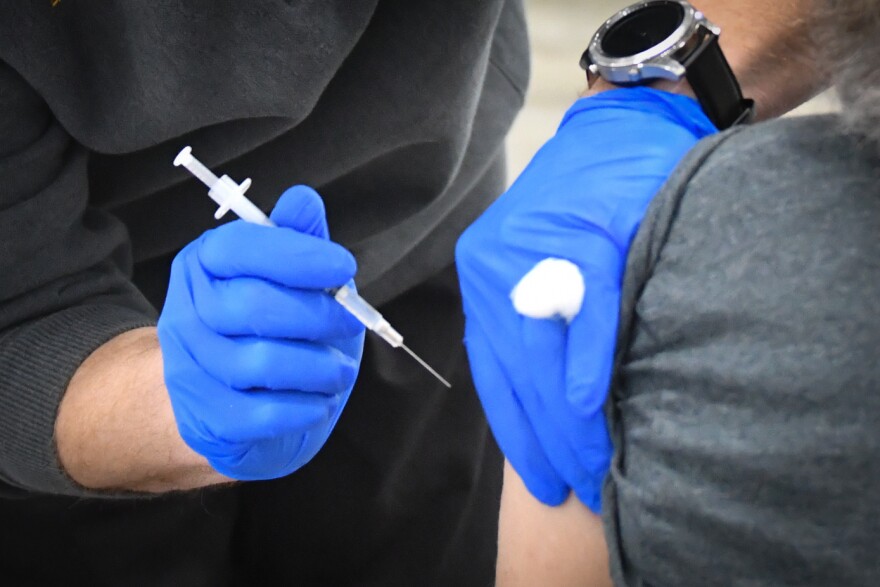A new booster shot could arrive in Kansas City as early as Labor Day and a local health department is using a community survey to gauge demand.
The Platte County Health Department is administering the three-question form in preparation for the bivalent vaccine, which the Centers for Disease Control and Prevention and Food and Drug Administration are set to consider this week. The bivalent vaccine targets the original COVID-19 strain as well as the currently dominant omicron subvariants BA.4 and BA.5
Aaron Smullin, a spokesperson for the Platte County Health Department, said the department is preparing for a September release of the booster and expects that demand could be high, especially now that school has resumed.
“The survey is designed to get an idea if folks are interested in getting the bivalent vaccine but also how would they like to receive that vaccine,” Smullin said. “Is it a drive-through method? Is it coming to a regular clinic? Or, if we find that the need is much larger than we originally thought, potentially scaling up our operation to a much larger vaccination site."
The third question asks respondents which brand of vaccine they prefer. Smullin said just over 50% of the county has been vaccinated thus far.
Across the Kansas City metro, the seven-day daily average of COVID-19 cases has dropped to 254, according to the latest report Tuesday by the Mid-America Regional Council. The report marks a continued decrease in seven-day daily averages since July.
The MARC figures also show hospitalizations down from 76 to 73 per day — a notable decrease since a summer high of 101 on July 24.
Scientists at Washington University in St. Louis who conducted a clinical trial of bivalent vaccines said it would be best suited for newer strains of the COVID-19 virus. The current vaccine is based on the original strain that emerged in 2019.
Researchers say they hope the new generation of vaccines will better prepare the body for variants and make the infection more like a common cold. But they say vaccines will likely still require regular updates to match circulating versions of the virus.
With colder temperatures looming and hospitals already dealing with reduced staffing and bed space, Smullin said filling out the survey and getting vaccinated are important.
“We know in the wintertime we saw that huge surge of COVID across the Kansas City metro area,” Smullin said. “We do not want to have another winter that is like that, so getting vaccinated is truly one of the best ways to flatten that curve.”






